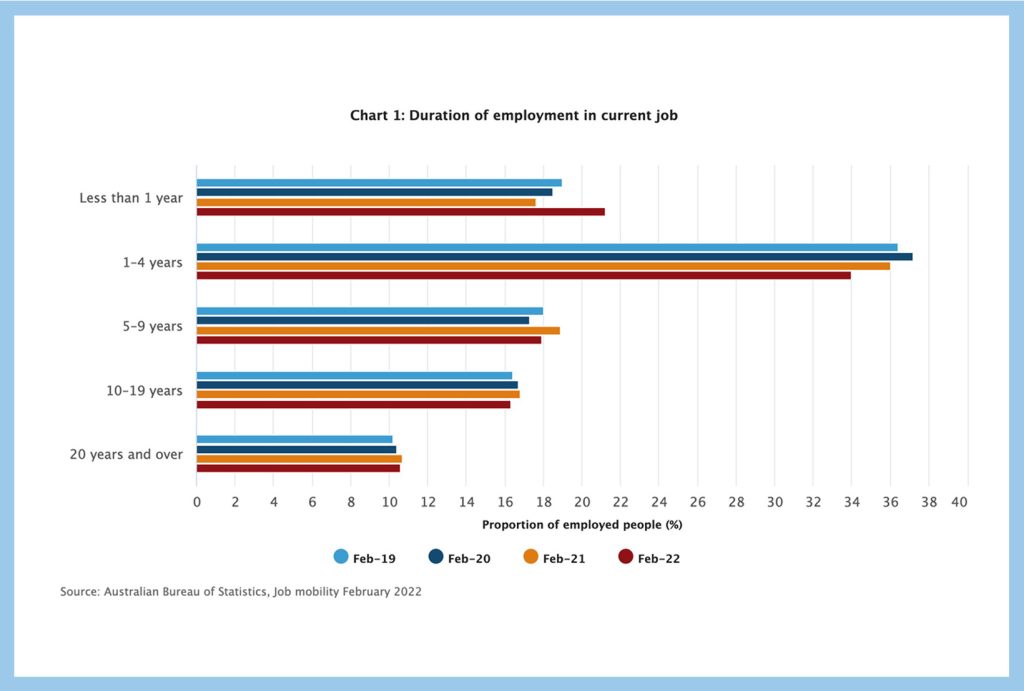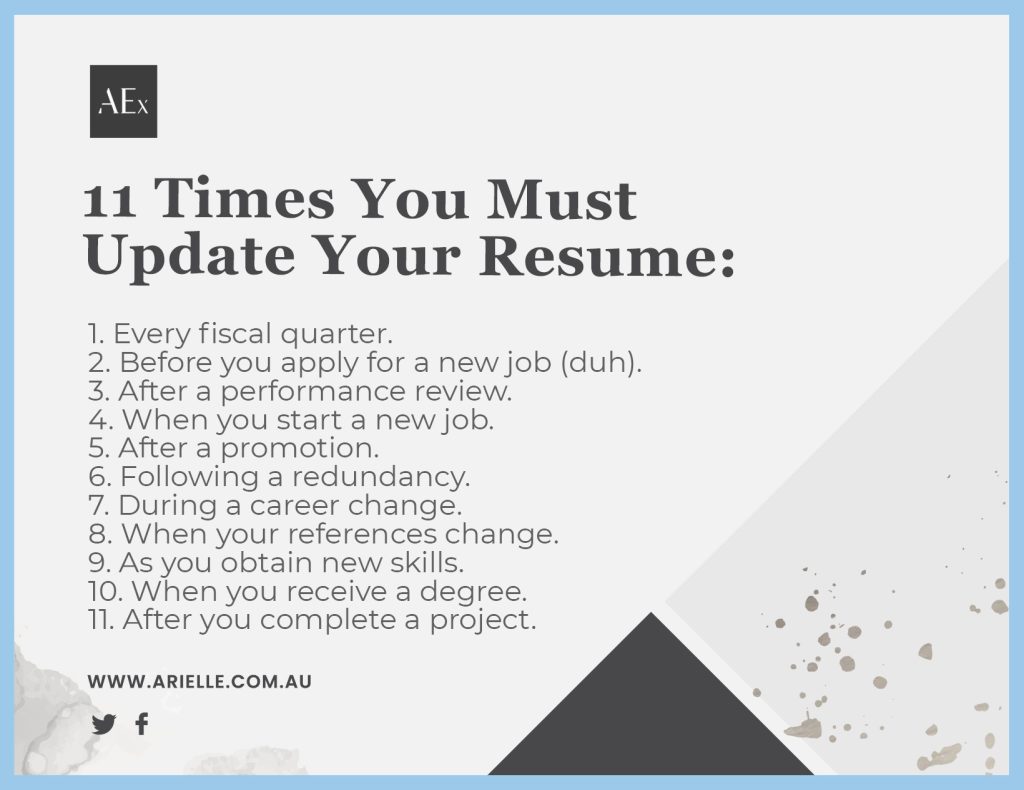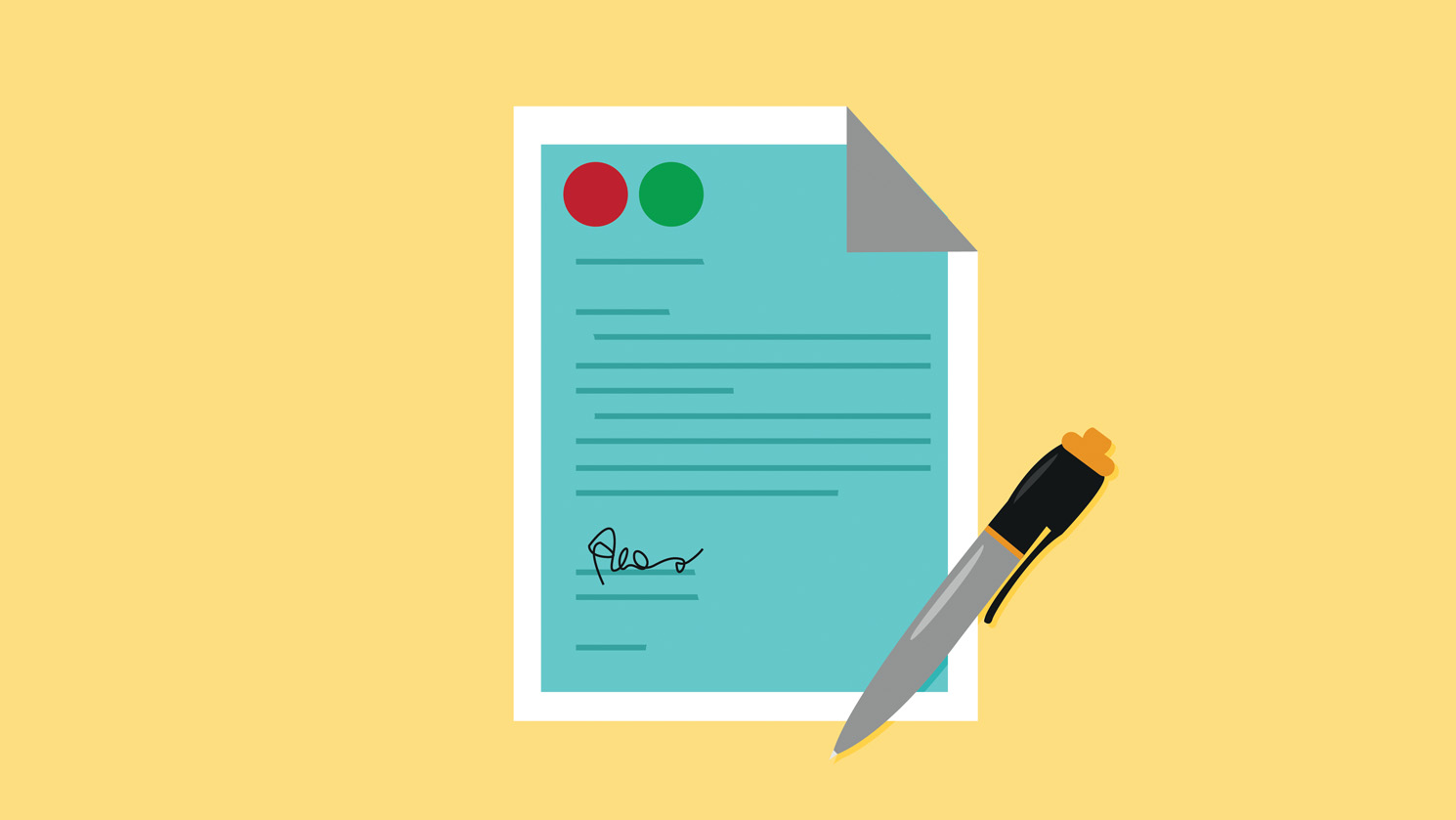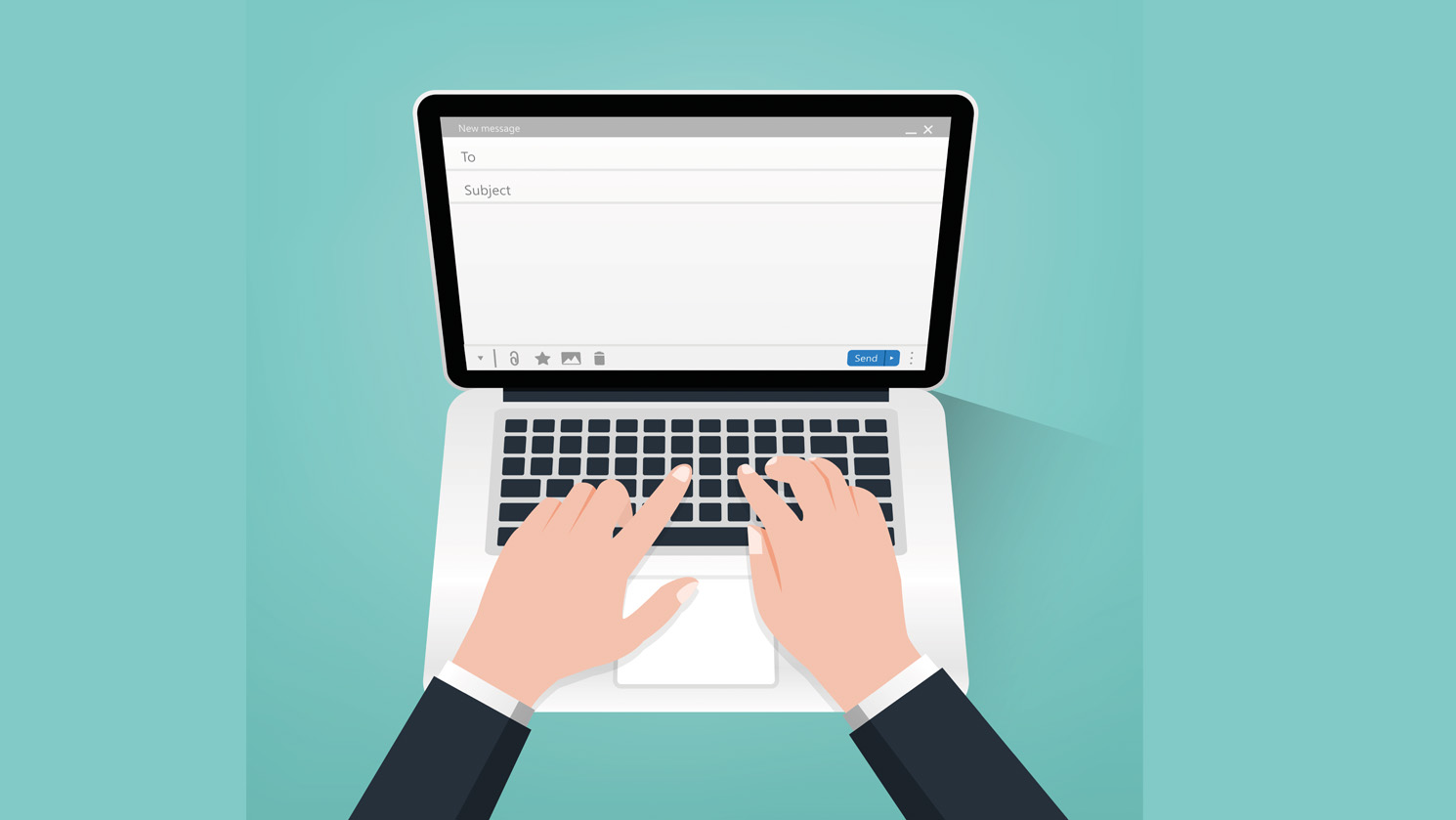Imagine hearing about a dream job and discovering that your resume is outdated or poorly written. Stress and rushed edits ensue. How often should you update your resume, then, so you can always be ready to pounce on new opportunities?
Invest a little bit of your time in the 11 situations I describe below to ensure your resume is always capable of impressing hiring managers during a job search.
1. Every Quarter.
Update your resume every three months, highlighting any changes in your:
- Job title.
- Personal brand.
- Achievements, responsibilities and skills.
Expert Tip.
Create a rolling quarterly 2-hour appointment in your calendar to perform this update. If it’s not in your calendar, you’ll find reasons not to do it.
2. Before You Apply For A New Job.

Australias change jobs often, with most people moving every 1-4 years. (Source: Job Mobility, Australian Bureau of Statistics, 2022).
This one seems pretty obvious, but many people apply for jobs using outdated resumes.
- A hiring manager will notice missing information and interpret it as your lack of attention to detail.
Expert Tip.
Be sure to tailor your resume to each position you apply for. Don’t send the same resume each time! Recruiters need to know that you have the skills to solve a specific set of commercial challenges within their company.
3. After A Performance Review.
Consider the traits and accomplishments that your boss praised during the review. If they are not in your resume, add them.
You should highlight that achievement using the CAR or ARTA method, demonstrating and quantifying your impact on the business.
4. When You Start A New Job.
If you ever change jobs, update your resume to indicate you no longer work for your former employer – and to add your new position.
As a rule of thumb, delete positions that:
- You held more than 15 years ago.
- Are irrelevant to your new direction.
This will keep your resume from getting too long.
Expert Tip.
Save those details in a separate document – in case they become relevant again.
5. After A Promotion.
Congratulations! Your career is progressing nicely.
Add your new role to your resume’s “Professional Experience” section. You won’t have much in the way of achievements to show (yet), but you can outline your new:
- Mandate.
- Job Responsibilities.
Be sure to add the start date of your new role and the end date of the old one.

6. Following A Redundancy Or Job Loss.
Unfortunately, most adults will experience redundancy or job loss during their careers. If this happens, an up-to-date resume will help you re-enter the job market more quickly and with less stress.
(Related: How To Get Maximum Redundancy Entitlements).
Explaining a redundancy or a job loss on your resume is an art form. My guide shows you the best way to approach it.
7. During A Career Change.
If you decide to shift careers, you must make significant edits to your resume to realign your previous roles with your new career direction.
My guide to writing a career transition resume shows you how to do this well.
8. If Your References Change.
Occasionally, you might want to double-check the accuracy of your referees’ contact details – in case some of them change their phone number or email address.
(Related: Do You Need To Include Referees On Your Resume?)
Also, check that your chosen referees are still the best people to provide a vote of confidence for your skills and personal attributes. If not, remove those individuals and replace them with new references.
(Related: Australia’s Top Outplacement Services).
9. As You Obtain New Skills Or New Job Title.
Even if you don’t have plans to leave your current role, consider updating your resume when you acquire new major skills.
- Your resume’s skills section may not be a huge part of your resume, but it is critical for drawing the attention of recruiters and passing ATS tests.
10. When You Receive A New Degree Or Certificate.
Added another degree to your toolkit? Add the university’s name, the name of the program, the degree type, and the year.
- If you earned any special honours, add those as well.
Adding a degree or certificate shows employers that you’ve continued your education to advance your skills.
- It can also demonstrate that you’re willing to learn new things to succeed at your job.
Sharing your education or training can also help when looking to move to a new industry. If you don’t have relevant work experience, you can use your degree to set yourself apart from other candidates.
11. Upon Completion Of A Project.
Mention the project under the “job responsibilities” section of your professional history.
Include details about the broader business context (e.g., why were you brought on to run this project?) and your achievements.
- You can also add personal or educational projects.
Place them in the “Education” or “Hobbies” sections of your resume to maintain clarity.
Well, How Often Should You Update Your Resume?
Almost every job seeker has wondered, “How often should I update my resume?”
Similarly, every job seeker has done their best to avoid making resume updates regularly. We always have something better to do, don’t we?
Yet, an updated resume gives you peace of mind when great opportunities arise. Invest a few hours in any of the situations above, and you’ll have a current resume that sells your most impressive qualities to hiring managers and recruiters.
Irene






